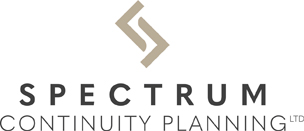Continuity planning in a private corporation refers to how the business, shareholders, and shareholders’ families carry on in the event of the death or disability of a shareholder.
The risk of operating a business with weak continuity planning is that should bad health or death occur, those affected (e.g., partners, family) will act from a position of weakness, uncertainty, and distrust. Where before the medical event, everybody was on the same page, now there are competing interests among shareholders.
Clearly, it’s terrible, emotionally, if a business partner or family member becomes ill or dies, but there are financial and organizational challenges that arise, too. How does the family of the deceased or disabled person get income? Who runs the company? Who owns the shares? There are countless problems that might arise and need to be faced.
The shareholder agreement in a private company covers many things including:
- rights to sell shares
- restriction on issuing shares
- restriction on encumbering shares
- borrowing
- rights to access books and records
- ability to vote shares and call meetings
- power of officers and directors
- valuation of shares
Continuity Planning for an Unexpected Death or Disability
Our area of expertise is about planning for bad health scenarios. The thorough Continuity Planner will have solid answers (and good, tight documentation) for the questions listed below. For a printable version of these questions, click here.
In the event of the disability of a shareholder:
- For how long does the disabled shareholder receive salary? (A replacement might also need to be paid.)
- What is the corporate philosophy for paying dividends if one shareholder is disabled? (The disabled shareholder likely wants dividends paid; the “working” shareholder(s) likely wants to keep the money in the company for growth.)
- At what point (and at what price) does the disabled shareholder sell to the working shareholder?
- In order to determine if a transfer of shares should occur, who defines “disability”?
- How do you determine disability involving “mental capacity”?
- Is there a replacement to do the job of a disabled shareholder, in order to protect the value of the company?
In the event of the death of a shareholder:
- Who replaces the job and talent of the deceased shareholder?
- Will lenders ask for loan repayment?
- Will customers and key business contacts disappear?
- Does the family of the deceased continue to own shares and share in profit?
- Does the family of the deceased sell to the surviving shareholder(s)?
- How is the value set?
- Specific formula related to earnings/assets?
- Periodically-reviewed price?
- Business valuators appointed by seller and another by buyer?
- Set by firm accountant? (potential conflict of interest as accountant will continue to work for survivor)
If life insurance is to be used to fund the purchase of shares at death:
- Can all shareholders pass an insurance medical? (It’s best to determine this before spending money on lawyers and accountants.)
- Who owns and is the beneficiary of the insurance?
- Can the life insurance be assigned as collateral? Or borrowed against?
- Have the tax benefits to seller and buyer been analyzed and explained? (An industry analysis of buy-sell agreements determined that 80% of agreements do not structure the life insurance in the best way.)
- How do you handle an excess or deficiency of life insurance?
- Does the shareholder agreement state that the capital dividend account must be used? (That is usually the most effective method.)
- Does the shareholder agreement or bank loan agreement authorize the paying of a capital dividend, or any dividend?
- What happens to life insurance policies if no longer needed for the original purpose?
- If ownership of life insurance is transferred, at what price?
- Does the shareholder agreement refer to the life insurance setup correctly?
- What happens if the life insurance does not pay? (Rare, but it does happen if an insurance applicant misrepresents the medical history.)
- The life insurance and shareholder agreement could be set up in different ways. Have all the following options been evaluated?
- Cross Purchase Method
- Share Redemption Pre Stop-Loss Rules
- Roll and Redeem Method
- 50% Solution
- 100% Solution
- Hybrid Method
Planning is Key to Your Business’ Success
We understand that starting a business, growing a business, and selling a business is far more fun than thinking about the death or disability of a shareholder. But planning of this nature is really no different than your other business planning. You anticipate a situation and make sure that you have options, resources, and solutions ready for different scenarios. In every aspect of life, planned responses are far more successful than unplanned reaction.
We can help you put a plan in place.
To see a checklist for ensuring continuity planning for private corporations, Click here
PLEASE NOTE: Any reference to insurance policy wording is in our words. The actual insurance policy documents will contain the contractual wording, which might differ from that stated above. This article is not legal or accounting advice—please consult your legal/accounting advisors for specifics on your situation.



